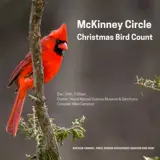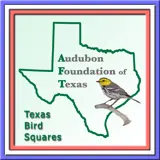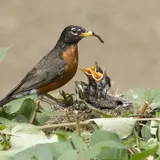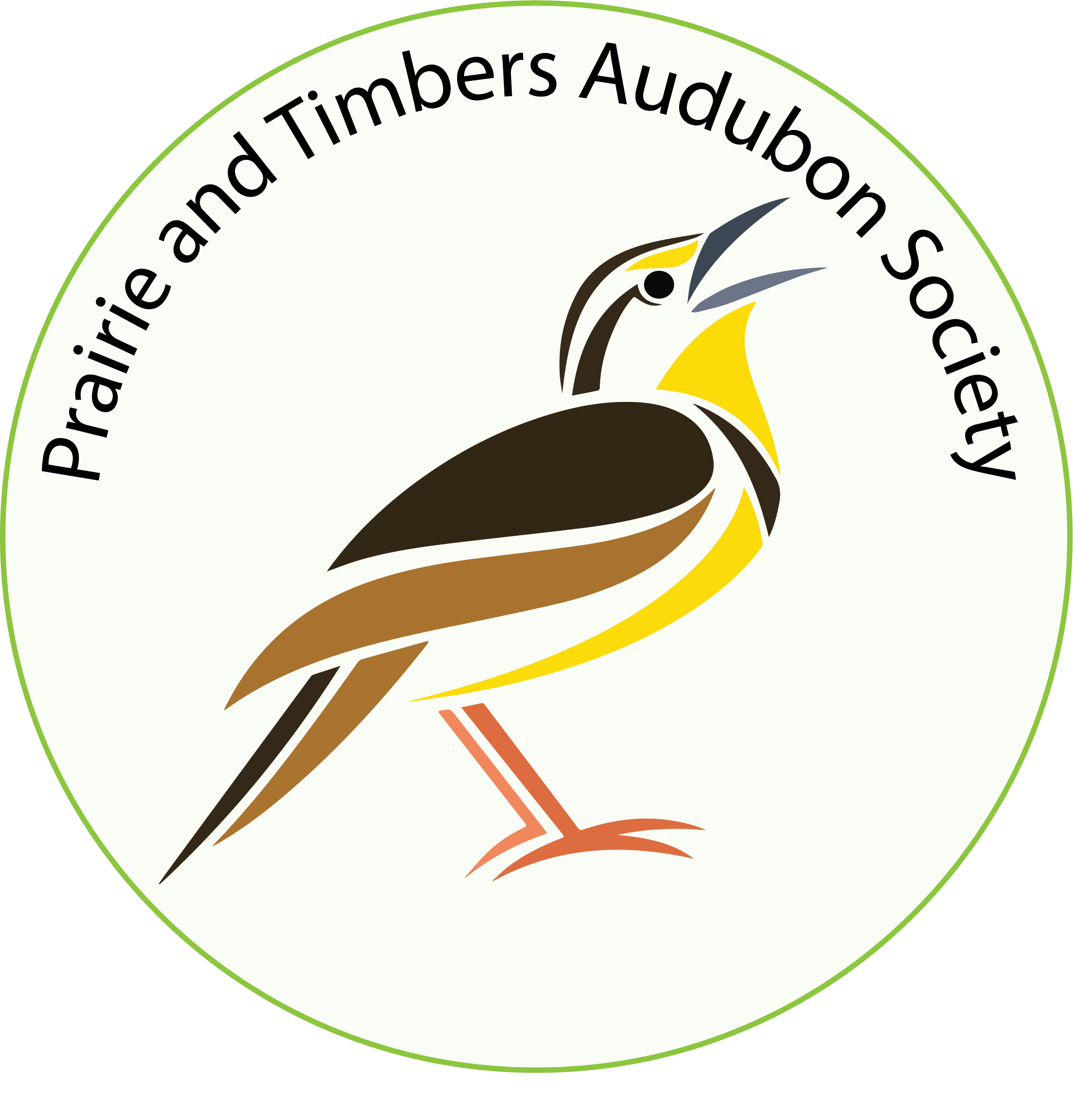PTAS members participate in community science projects throughout the year.
Bird monitoring plays a pivotal role in gathering critical environmental information and assessing it's impact, while also influencing human health in profound ways. Monitoring avian populations provides valuable insights into the health of ecosystems, acting as an early warning system for environmental changes such as habitat loss, population and climate fluctuations. By studying bird behavior, distribution and population trends, scientists can gauge the health of ecosystems, identify emerging threats and inform conservation efforts. Moreover, birds can serve as bioindicators, reflecting the quality of air, water and flood resources, which directly impacts human health. In essence, bird monitoring is not just about feathered creatures; it's a vital tool for understanding the environment and safeguarding the well-being of both ecosystems and human society.
Birding walks and birding field trips are at the heart of our passion and by submitting data on the number, time and location of species to Cornell Lab environmental data is readily available to researchers. As a couple diverse examples, the National Audubon Society is utilizing eBird data to inform the placement of wind turbines and transmission lines. Additionally, the Blackland Prairie Raptor Center, a local non-profit supported by PTAS, relies in eBird data to make informed decisions about the optimal locations for releasing the Mississippi Kites they rehabilitate.
Other community science engagements we support are:

Organized by the National Audubon Society, this annual event involves bird enthusiasts counting and identifying birds within a designated circle around Christmas time. The data assists researchers in studying bird population trends over time. PTAS sponsors the McKinney CBC where the circle is centered on the Heard Museum and held the day after Christmas. PTAS also supports a second count centered around Lake Ray Hubbard and held before Christmas.

The program focuses on monitoring and tracking the impact of climate change on bird populations across North America. Birds are highly sensitive to changes in temperature and habitat, and shifts in their migration patterns, breeding behaviors and distributions can provide valuable insights into the broader effects of climate change on ecosystems.

Also, by the Cornell Lab of Ornithology, this project encourages individuals to set up bird feeders and document the birds that visit during the winter months. The data collected helps researchers track changes in bird populations and movements.

This project focuses on monitoring bird nests, including when eggs are laid, when they hatch and the success of the young birds. Managed by the Cornell Lab or Ornithology, the data collected helps scientists understand nesting success and potential threats.

A joint effort by the Cornell Lab of Ornithology and the National Audubon Society, this event invites people to count birds for at least 15 minutes in their own yards, parks or other locations and report their observations online.
Organized in 1980, Prairie and Timbers Audubon Society serves Collin County and surrounding counties. We invite you and your family to join us for a wide range of nature-oriented activities. Monthly meetings are scheduled the 4th Tuesday, 6:45 pm, September through November and January through May. They are free and open to the public. Programs are related to wildlife, ecology, conservation and of course, BIRDS!
PTAS is a 501(c)(3) nonprofit organization and chapter of the National Audubon Society.3

